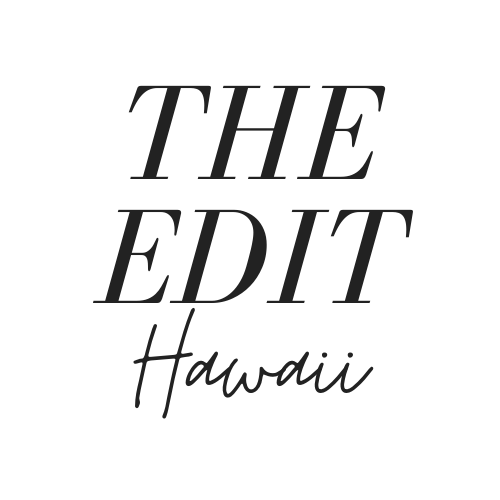COZY UP WITH CITRON & DATE TEXTILES
In the wake of COVID, makeup artist and interior design darling Jasmine Mullins had an eye-opening experience that led her to create something beautiful. Though the idea had been in her head for years, it wasn’t until the world shut down for a bit that she could fully develop it. Keep reading to learn more about Citron & Date’s luxurious European linen bedding, waffle print towels and loungewear that’s made in Hawaii, inspired by the world.
“People here basically live out doors. So when we were all forced inside a lot people were really negatively affected mentally and emotionally because their homes had always been more places to crash, rather than sanctuaries that brought them joy,” explains Jasmine.
After researching cultures that spend more time indoors due to colder temperatures, like Nordic cultures, they found that though people live in darkness nearly half the year yet are still statistically the happiest people on earth year after year. “The key was that they really analyzed the connection between design and the senses. They had a way of living that was centered on positive sensory awareness like soft textures, meaningful decor, comforting scents, soothing colors, uplifting sounds, etc.”
Early on, Jasmine knew Citron & Date would be a slow-fashion brand, one that isn’t based on trends, but that is timeless, full of heritage and makes sense for our modern lifestyle. “Linen was a no brainer. It's long been our favorite material. The process of making linen is so romantic and ancient that it is something that automatically links you to generations that came before you and that idea brings comfort,” she says with pride.
Citron & Date is a family-run custom linen atelier, owned by Jasmine and her mom Pam Allen. The mother-daughter duo start with raw linen shipped in from Europe, design each piece together, then Jasmine does the dyeing and Pam does all the sewing.
Every piece is handmade and hand-dyed here in Hawaii, using environmentally friendly dyes and ocean water, infusing the fabric with a little aloha. Plus, you’re no longer restricted to a specific color scheme. You can purchase new items or upcycle products you already own by having their team color-match some of your existing pieces.
By keeping things local, Citron & Date is able to control the quality and working conditions. “There's such an ethical conundrum with the manufacturing of fabric and dyeing, so by doing it ourselves, minimizing the output and working on a made-to-order basis has really helped us leave less of a negative footprint on the earth.”
To keep cost down, pieces are sold direct to consumer. Not to mention, there’s something special about the exclusivity of buying direct and knowing exactly where it came from. The buying process is personal, and a lot of care and attention is put into your order. Jasmine and her team take the time to help you find the right color for you, asking a variety of questions about your interests and inspirations, and sourcing images to help in the color matching process.
“This isn't a new idea,” Jasmine admits, “it's just not being done any more. It's like back in the day when people would talk to their tailors or shoe makers and have something custom fit. It's a luxury we don't have as much any more in todays world of fast fashion. It feels good because we don't just sell a product, we connect with a person too.”
Thus far, Citron & Date has employed five full-time employees, and hopes to add more in the future. Jasmine notes, “We always say this brand is a love letter to Hawaii that you can wrap up in. We were such sticklers for being 100% made in Hawaii because we wanted to give jobs to people in our own community. It's really nice because our economy so heavily relies on tourism, but we are really passionate about making new business that cater to full-time residents and locals, not tourists. We didn't design this brand for travelers, we designed for our neighbors, friends and community members. It's made in Hawaii for the people of Hawaii. If other people like it and want to buy so they can feel close to Hawaii, that's amazing, we’re all for it, but it's not what drives us.”





